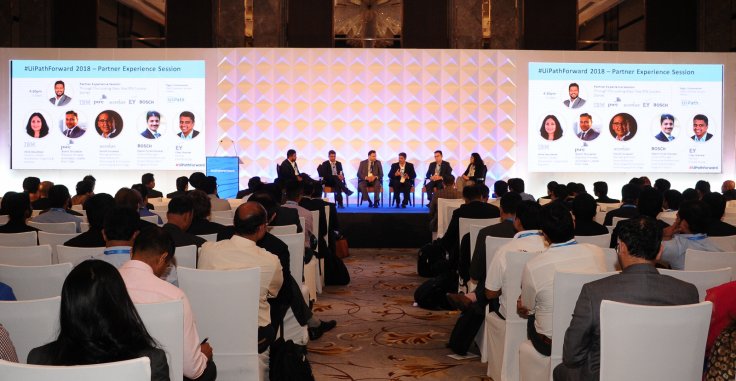
Robotic Process Automation (RPA) and Artificial Intelligence (AI) have been getting a huge response in recent years. Technology companies such as Google, Facebook and Amazon have been primarily driving advances in AI in the last decade that eventually saw several other traditional industries waking up to the promise of AI.
According to experts, RPA is a process where robots perform a vast range of repetitive tasks. They say that software robots can talk to each other, interpret and trigger responses.
Businesses are competing with each other every day to retain digital-savvy customers and the operations are stressed to deliver more with less to satisfy customer expectations. Thus, worldwide companies are fast moving into robotic process automation that can help them achieve efficiency and speed.
On Wednesday, experts discussed some of these issues at the User Summit on RPA at #UiPathForward India 2018 to give a clear idea from the global perspective. The summit, organised by UiPath, mainly focussed on RPA and the experts from major companies including HCL, KPMG, IBM, and Robert Bosch Engineering have presented their works. UiPath is a RPA vendor that helps firms to acquire automate business procedures.
The summit also had discussions about how RPA helps in Six Sigma implementation, risk assessment, and manage other important sections of industries. The event also discussed the flip side of it, especially the challenges from unemployment due to robotic automation.
Sarah Burnett, Vice President, Everest Group said: "Automation is the way to go and it will create incredible opportunities in the IT sector. In a recent study by Everest Group, 80% of companies that we surveyed rated RPA to meet expectations, and even exceed them."
She added that RPA addresses many areas such as regulatory compliance, process automation and more. "In addition it is secure, and most importantly, it is scalable – some of the most important dimensions when implementing RPA," Burnett stated.

Co-Founder and CEO of UiPath Daniel Dines said that the robotic automation is increasing the happiness of people. "RPA is actually increasing in a way the job security," he added.
Talking about the potential impact of RPA, Dines said that the process will have a huge impact globally especially once people overcome the fear that RPA will result in job losses.
"RPA wouldn't exist without India. India is in a prime position to become an RPA powerhouse and reap the benefits in terms of jobs. RPA will help build India's middle class," he noted.
The summit held in Bangalore was attended by more than 650 business leaders, experts and executives, and the discussions focused on topics ranging from RPA implementation to Artificial Intelligence (AI) and automation research.









